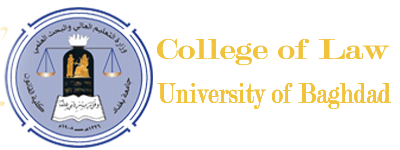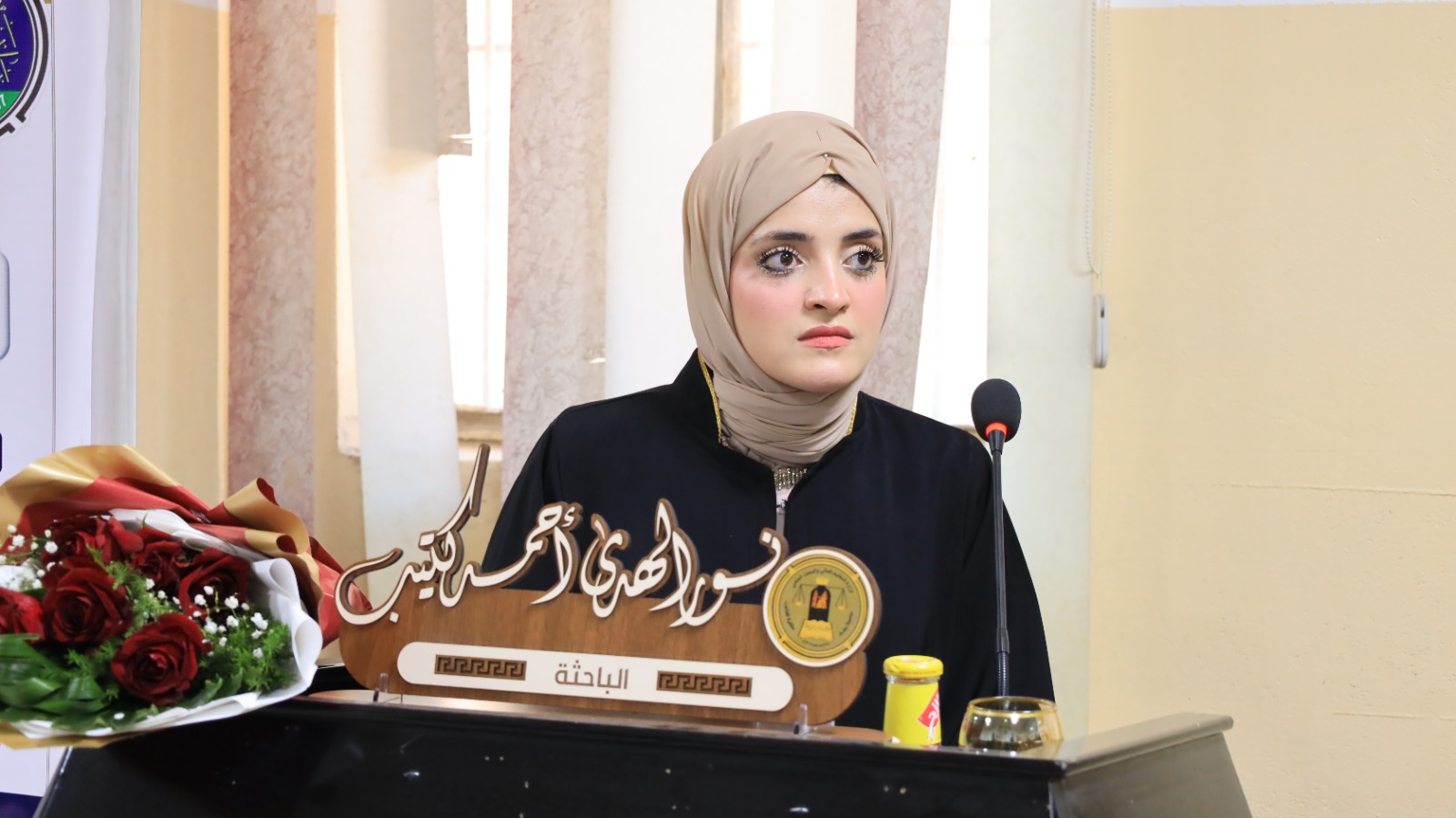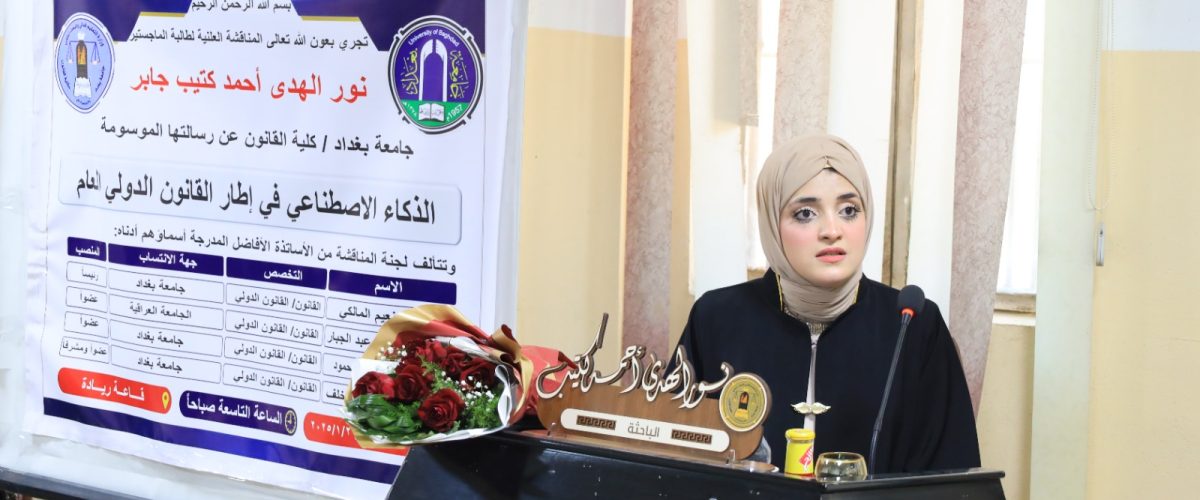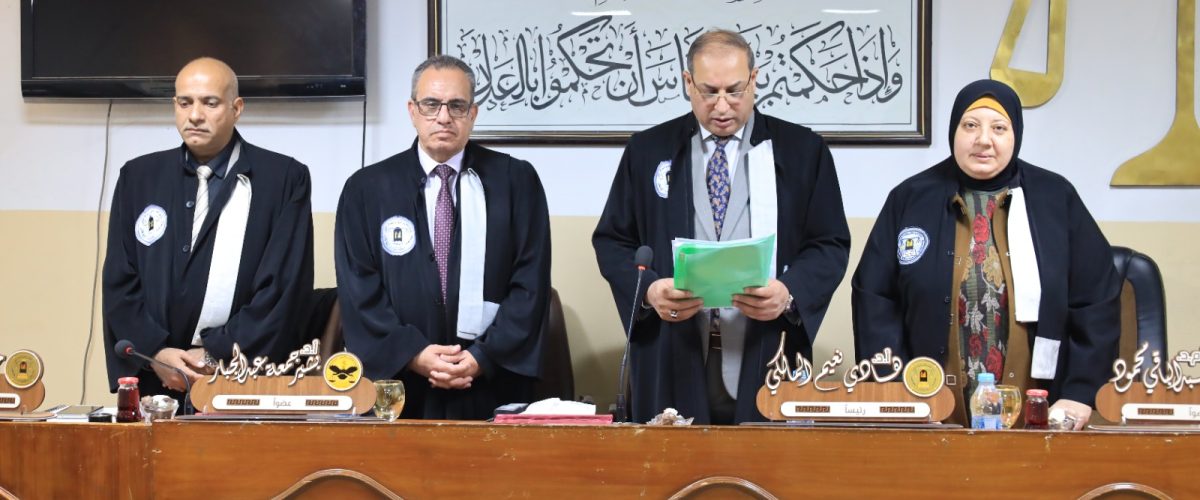The College of Law at the University of Baghdad discussed a master’s thesis in the field of international law by the student Noor Al-Huda Ahmed Kateeb, titled “Artificial Intelligence within the Framework of International Public Law” on Thursday, January 2, 2025, at the model court in the college.
The discussion committee consisted of the following members:
- Prof. Dr. Hadi Naeem Al-Maliki (Chair)
- Prof. Dr. Basheer Jumaa Abdul-Jabbar (Member)
- Asst. Prof. Dr. Luma Abdul-Baqi Mahmoud (Member)
- Prof. Dr. Hussam Abdul-Ameer Khalaf (Member and Supervisor)
The thesis aimed to provide a legal analysis of artificial intelligence from the perspective of international public law, by examining the legal consequences faced by the international community due to the use of artificial intelligence, especially in relation to its impact on interactions between states and its effect on state behaviour towards their citizens. The thesis also explored the regulatory framework governing the use of artificial intelligence in the context of international public law, aiming to clarify the key standards, principles, and mechanisms adopted by states and international organizations regarding the regulation of this technology’s usage.
The thesis consisted of three chapters:
- The first chapter addressed the conceptual framework of artificial intelligence.
- The second chapter discussed artificial intelligence and its relation to branches of international public law – a dialectical relationship.
- The third chapter examined international efforts to govern artificial intelligence and the responsibility arising from its use.
The thesis concluded with several recommendations, the most important of which were:
- The need to establish human rights related to artificial intelligence in the context of regulating AI at both the international and national levels, including:
- The right to explain decisions based on AI outputs.
- The right to effective redress for damages caused by AI.
- The need to adopt the concept of purposeful human control as an independent principle governing the general use of artificial intelligence, as it provides great flexibility to accommodate the evolving generations of this technology and integrate them into the regulatory framework. This also addresses the core issues emerging in the age of artificial intelligence.
- The necessity of creating a dedicated artificial intelligence body within the institutional structure of international organizations. This body should include experts and specialists in fields such as computing, AI, law, and political science. Its role would be to study the implications of AI on the organization’s areas of interest and provide recommendations on governance mechanisms for the technology, ensuring collaboration and communication between these bodies to maintain coherence in governance approaches and mechanisms.
-
Including clear and specific commitments within the Iraqi national AI strategy for all stakeholders throughout the AI lifecycle, including programmers, operators, and producers, to ensure the safe and responsible use of the technology.



